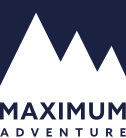The Rongai route on Kilimanjaro is one of relative solitude, less travelled than the Lemosho and Machame Routes, the route is easier with slow, gradual climbs and no steep ascents although is less scenic than the other routes. The route starts from the northern side of the mountain near to the border with Kenya so has a longer transfer time from your hotel, and tends to be sheltered from the rain. From this route the Mawenzi volcanic cone is visible. This route is ideal for less experienced trekker.
Please be advised that you are travelling to a completely different part of the world! This may sound obvious but it is surprising how many people are taken aback by the differences in culture. Local standards are a contrast to those in the Western World, you should be prepared for this and be happy to accept the differences. The standard of vehicles on the roads is lower, the standard of driving is lower, the hotels have different set-ups, etc. These differences also extend to the mountain, local guides are trained to a different standard than Western leaders, food and water hygiene is different. Our leaders will advise you of what to do and what not to do to help you adjust as easily and painlessly as possible. You should, as much as possible, try and enjoy the differences in cultures that exist because this is one of the things that make travel so interesting!
Altitude and Climate
This trek visits high altitudes! It is imperative you are properly acclimatised not only in order for you to have a safe trek but also an enjoyable one as altitude sickness has the capacity to make you feel very miserable! All along the way you will find warnings about ascending too quickly, if you show signs of altitude sickness appropriate measures (i.e. descent) must be taken. Inform yourself as much as possible about this issue before you travel in order to have an understanding of how you may be affected. Keep your guide informed regarding how you are feeling during the trek. The climate during your trip will vary between hot in Moshi (25-35°C), to relatively warm on the lower trekking trails (15-25°C daytime) to cold at the higher elevations (0-5°C daytime). Temperatures at Meru and Kilimanjaro summit can be as low as -25°C with snow. You must be prepared to encounter low temperatures. This is particularly relevant when deciding upon which equipment to take. This should be of good quality.
Visas and Vaccinations
You will need:
- A Valid Passport: Your passport will need to be valid for at least 6 months after your return date. Please bring a photocopy of your passport with you for Kilimanjaro Park Permits.
- Relevant Vaccinations and where necessary Malaria tablets: For medical and inoculations advice, contact your local GP and visit the Foreign & Commonwealth Office website before you travel. Do this in good time (at least 3 months) as many injections/treatments must be given a certain time apart.
- Entry Visa: All British nationals require a visa for entry into Tanzania. You need to arrange these prior to departure. Visas are valid for 3 months from date of issue and can be purchased via the United Republic of Tanzania Immigration Department website and check out the Visa Application Guidelines website. If you are not a British national then you will also need to contact the embassy to enquire about visa requirements.
- Relevant travel Insurance: You will need to make sure your insurance includes an element of trekking up to 6000 metres.
Guides and Porters
Your guide will be certified, accredited and an English speaker. You will have the backup of a great local team to help you along. The support team includes local Tanzanian registered guides, porters and a cook. The guides we use have many years’ experience guiding Mt Kilimanjaro with some having made over 100 ascents!
We adhere to the guidelines laid down by the International Porter Protection Group. This organisation works to improve the working conditions of mountain porters in the tourism industry worldwide, consequently we do not ask our porters to carry more than 20kg per load (this is advised by the IPPG). In view of these guidelines, we request that you limit the equipment you ask your porter to carry to a maximum of 15kg. Many ‘Westerners’ feel uncomfortable seeing a local ‘carrying their bags’ but guiding and portering are recognised professions in Tanzania, so remember that for them this is a job and often forms a vital part of a family’s income. We provide adequate clothing per porter for the intended trek and full insurance during the time of their employment. It is the custom to tip porters so please bring with you an envelope in which to put your tips. This envelope must be handed to the guide, sealed. It is not to be handed to the porter. The guide will then take all the tips in and distribute them accordingly. More information as to why this happens and further information on tipping amount guidelines can be found via Kilimanjaro Porters Assistance Project
Why Book With Us
We know you have a choice of companies to climb Kilimanjaro with. Here are some of the reasons you should choose to travel with Maximum Adventure:
- We are an established adventure travel business
- We have been trading since 2002
- We are financially protected in accordance with the 1992 travel regulation
- Knowledgeable and available office staff
- Qualified leaders and guides with ascents ranging from Ben Nevis to Mount Everest
- All activities are risk assessed
- We try to give you the best service we can
- We are aware this is your adventure/challenge and will do our best to facilitate it
- We have many repeat clients stretching back many years

















